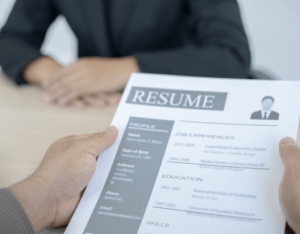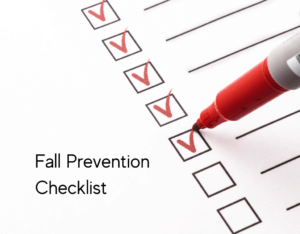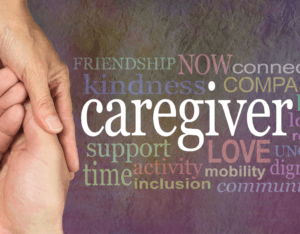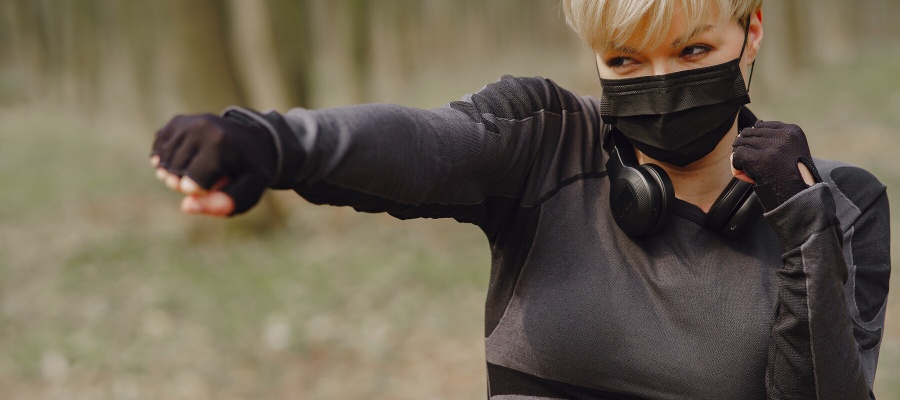If you watch the news for even a minute these days you will undoubtedly be bombarded with information about COVID-19 (the coronavirus). I also know that the demands of caring for a loved one is already a full-time job without the added burden of figuring out how to keep you and your loved one safe during a pandemic. In this article I focus on COVID-19 and caregivers. What you can do to take care of yourself as well as your loved one.
Caregivers: Be Aware of the Symptoms for COVID-19
Since COVID-19 is a new disease, there is limited information regarding risk factors for severe illness. What we do know currently from clinical experts is that older adults and people of any age who have underlying medical conditions may be at a higher risk for severe illness from COVID-19.
Symptoms of COVID-19 can range from no symptoms at all to severe illness and death. Symptoms may appear 2-14 days after exposure and can include fever, cough and shortness of breath. Watch out for other symptoms as well.
While some people can have no symptoms at all, people with dementia may exhibit some of the following:
- Increased agitation
- Increased confusion
- Sudden sadness
- Coughing
- Difficulty breathing
- Fever
- Chills
- Repeated shaking with chills
- Muscle pain
- Headache
- Sore throat
- New loss of taste or smell
Know How to Take care of yourself
As a caregiver, you are providing care to someone who requires some degree of ongoing assistance with activities of daily living. During this pandemic, you are also a first responder, providing the first line of defense to your loved one. First responders often experience stress due to heavy workloads, fatigue and other factors that come with an emergency. So, now you have the stress of caregiving being compounded by the stress of a first responder.
Breathe! Relax! In order to take care of others, you must be feeling well and thinking clearly. Here are some tips on how to take care of yourself:
- The basics – eat healthy foods, avoid using alcohol and drugs, exercise regularly, and get plenty of sleep. Even activities as simple as walking, stretching, and taking deep breaths can help you feel less stressed.
- Establish and maintain a routine – this has always helped me. I get up at the same time in the morning and do some form of exercise before I have to start my caregiving routine. It’s my “me time”. I write in my journal while I enjoy my coffee. I actually enjoy this part of my day. Find a fun activity that you can look forward to in your daily routine. And, make exercise part of that routine.
- Take a break from the news – I find that constantly watching the news, listening to the radio or browsing social media puts me in a higher state of anxiety. There is so much going on in the world right now and hearing it over and over again all day is not good. If you want to keep up on the updates regarding COVID-19 check out the CDC’s website for current information on how to keep you and your loved one safe.
- Connect with others – although you may not be able to physically hang out with friends and family right now, pick up the phone or use one of the networking apps to connect with someone. During this pandemic I was introduced to an app called House Party. It’s a hoot. You can even play trivia games with the person you are talking with. Check it out.
- Reach out to your healthcare provider – if needed. If stress and anxiety gets to be too much for you and is present for several days in a row, call them. Most health care plans will have recommendations and resources to help you manage stress.
- Find a local support group – you are not in this alone. For every one of you there are tens, if not hundreds more, experiencing the same things. Find a local support group to connect with. Your local senior center should have referrals for you.
- Have a back-up caregiver – identify someone you can turn to if something ultimately happens to you or if you yourself become infected with COVID-19. Your loved one will continue to receive care while you take care of yourself.
Minimize the Risk of COVID-19 Infection
As a caregiver, your number one priority should be taking all the precautions you can to avoid becoming infected yourself. Here are the basics:
- Wash your hands frequently with soap and water for at least 20 seconds before and after providing care, preparing food, using the bathroom, or touching surfaces in public places.
- Avoid crowds, and if you cough or sneeze, do so into the bend of your elbow or into a disposable tissue.
- Don’t touch your face (I know this is hard….but you can do it).
- Wear a mask when out in public. This also serves as a good reminder not to touch your face.
- Clean frequently touched surfaces in your home often, including mobility and medical equipment used by your loved one, such as walkers, canes and handrails.
- Postpone unnecessary doctor visits. If an older adult in your care is feeling well, consider helping them postpone elective procedures, annual checkups and other non-essential doctor visits.
- Use a telemedicine option if possible rather than visiting a doctor.
- Avoid travel. Older adults should put off non-essential travel, particularly cruises or trips with itineraries that would expose them to crowds.
Practice Physical Distancing, Not Social Isolation
Early into the COVID-19 pandemic, the Centers for Disease Control (CDC) put out guidelines suggesting we should practice social distancing as a way of minimizing the spread of the virus. What that guidance suggests is that we should stay at least 6 feet away from each other and not to gather in crowds.
I have always had a problem with that term “social distancing”. I prefer to use the term “physical distancing” as it better describes the intended outcome of staying away from each other. To me, social distancing sounds like an attempt to distance from each other socially, which is not what we need right now. Social isolation is a big issue, especially among seniors right now, so we should be doing everything we can to socially connect with each other.
While it is a good idea to limit physical contacts with people right now, find a way to increase your social connection. Be creative. Many seniors turn to local senior centers or churches as a way to connect with others. Now that they are closed, we need to find unique ways to socially connect with each other.
Create a Plan
Talking things through with your family ahead of time (before an emergency happens) can reduce stress and help everyone feel more involved and prepared.
If possible, include your loved one in the discussions on how you’ll manage interruptions of routines and what will happen if they, or someone else in your family, becomes sick.
Choose an emergency contact. If you are the main caregiver, designates someone nearby whom you can call on to care for your loved one should they, or you, become ill.
Stock up. This doesn’t mean hoarding toilet paper! 🙂 But, it should include gathering one to three months of medications and at least two weeks’ worth of food, pet supplies, cleaning supplies, and other essentials.
Symptoms or exposure? Call ahead
If you or your loved one feel that you might have been exposed to someone diagnosed with COVID-19 or if anyone in your household develops symptoms such as cough, fever or shortness of breath, call your family doctor, nurse helpline or urgent care facility. Check out this article on what to do if you feel sick.
For a medical emergency such as severe shortness of breath or high fever, call 911.
Recommended For You

What Is A Caregiver Referral Agency? Should I Use One?
As caregiving needs grow, finding the right support becomes crucial for families and individuals. Two main options for obtaining caregiving assistance are caregiver referral agencies and in-home care agencies. A …

Medical Marijuana For Seniors – No Longer the “Evil Weed”
Doctors across the country are calling for a re-think of current government policies, in terms of allowing medical research on

Sample Family Caregiver Agreement
More than 34 million Americans served as informal (unpaid) caregivers during the previous year according to the AARP Public Policy Institute. Oftentimes, these are adult children caring for an aging …

How To Pay For In-Home Care
Although the cost for in-home care is usually a less expensive option than Assisted Living or Nursing Homes, the ability to afford Home Care is an important consideration. Most in-home …

Fall Prevention Checklist For Seniors – Free Download
As we age, maintaining our balance and mobility becomes increasingly challenging. Falls can lead to serious injuries and a significant loss of independence. However, many falls are preventable with the …

How To Care For A Caregiver
If you are, or have been a caregiver, you know that caregiving is a labor of love. Your work is often performed in the shadows without much recognition. While caregivers …



